
14 tips on getting better gas mileage
Updated July 1, 2024 . AmFam Team
Fuel-efficient vehicles help you travel longer distances with fewer required gas station stops, which can translate into significant savings each year. Whether you're looking to optimize your current vehicle's gas mileage, are in the market for a more fuel-efficient car or both, this article can help you learn how to go farther for less.

What is good gas mileage?
What’s considered “good” gas mileage can vary due to factors such as the vehicle's engine year, make and model. As a rule of thumb, a gas mileage average of 23 miles per gallon (mpg) – for combined highway and city – is considered good.
Here’s a quick breakdown of popular newer vehicle types and the gas mileage range to expect from each:

Gas pickup trucks
- Standard truck: 16 mpg - 27 mpg
- Large truck: 10 mpg - 22 mpg
Hybrid pickup trucks
- Standard truck: 22 mpg - 40 mpg
- Large truck: 18 mpg - 26 mpg
Electric pickup trucks
- Standard truck: 60 mpg - 91 mpg
- Large truck: 45 mpg - 59 mpg
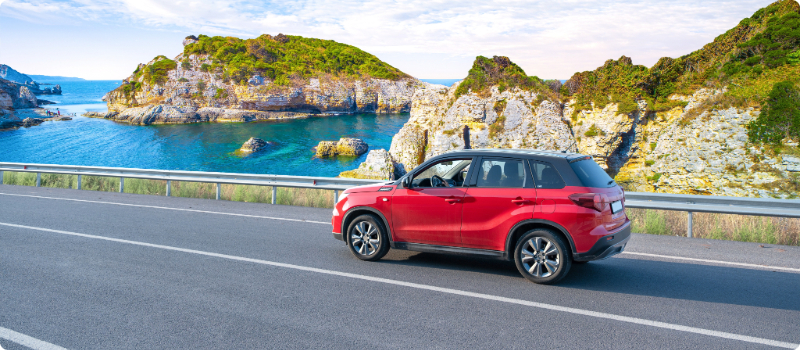
Gas SUVs
- Small SUV: 17 mpg - 37 mpg
- Standard SUV: 16 mpg - 32 mpg
- Large SUV: 11 mpg - 20 mpg
Hybrid SUVs
- Small SUV: 29 mpg - 54 mpg
- Standard SUV: 19 mpg - 40 mpg
- Large SUV: 16 mpg - 26 mpg
Electric SUVs
- Small SUV: 80 mpg - 136 mpg
- Standard SUV: 76 mpg - 107 mpg

Gas sedans
- Small sedan: 21 mpg - 42 mpg
- Standard sedan: 17 mpg - 39 mpg
- Large sedan: 12 mpg - 30 mpg
Hybrid sedans
- Small sedan: 23 mpg - 57 mpg
- Standard sedan: 22 mpg - 53 mpg
- Large sedan: 18 mpg - 31 mpg
Electric sedans
- Small sedan: 90 mpg - 149 mpg
- Standard sedan: 80 mpg - 135 mpg
- Large sedan: 69 mpg - 107 mpg
Many factors affect fuel efficiency, and the average miles-per-gallon shown above are considered top-of-the-line gas sippers for their category.

Fuel-efficient driving tips
While buying a vehicle that boasts an excellent mpg average can help you pay less at the pump, your driving behaviors also affect mileage. Here’s how you may be able to optimize your average mpg by becoming a more fuel-efficient driver.

1. Drive patiently and defensively
Zipping around other cars by rapidly accelerating and decelerating waste gas is not particularly safe either. Be kind to other drivers (and your wallet) by gradually applying the gas and avoiding excessively stepping on and off the brake.
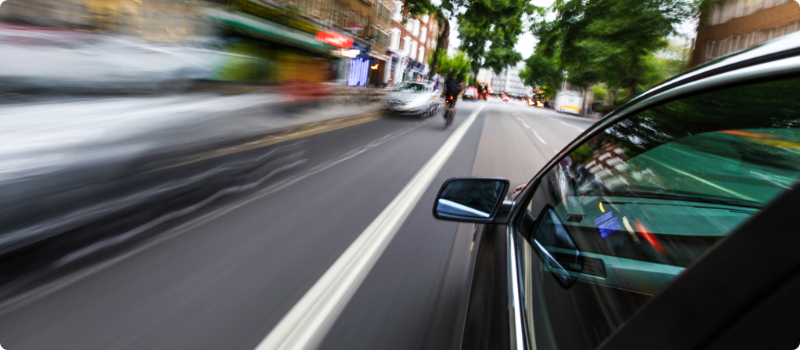
2. Avoid speeding
The accepted rule of thumb is that every five miles per hour you drive over 50 mph reduces your fuel efficiency. Obeying the speed limit can help you stay under that threshold. Save and be safer by keeping a steady, legal speed.
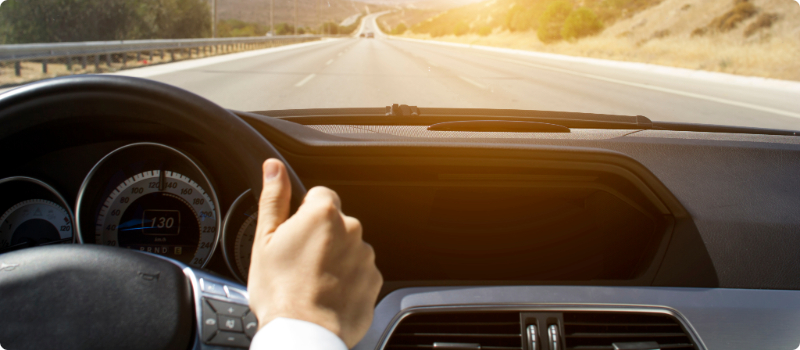
3. Take advantage of cruise control
Instead of accelerating and decelerating during longer road trips, let your cruise control maintain your vehicle’s speed and keep your car running efficiently.
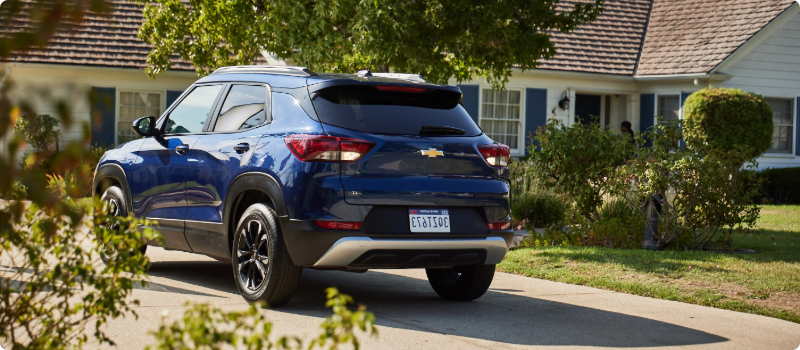
4. Don’t waste gas on idling your vehicle
Whether waiting in line to pick up your kids at school or at a stopped drive-up window, turn off the car when parked. Typically, idling your vehicle uses up to half a gallon of gas per hour and 30 seconds of idling wastes more gas than restarting your car (Opens in a new tab).
To improve your car's mpg (and help the environment), avoid idling. If you live in an especially hot or cold climate, parking your car in a garage can help you avoid excessive idling. Pre-warming or cooling your vehicle before leaving each morning may significantly decrease your mpg.

5. Reduce air conditioning use
While running your car's heater doesn't affect your mpg, turning on the air conditioner does use more gas. According to fueleconomy.gov (Opens in a new tab), air conditioning is a leading cause of reduced gas efficiency in warm weather. However, these AC guidelines may help improve your vehicle's fuel efficiency in the summer:
- Drive with windows open at slower speeds and enjoy the breeze
- Set the temperature at a reasonable setting while driving with closed windows
- Turn off your AC when you’re cool enough
- Avoid running the AC while idling

6. Roll up those windows
Rolling down your windows may save more gas than running your AC at slower speeds. However, according to the Society of Automotive Engineers (Opens in a new tab), driving at speeds higher than 55 mpg with the windows down creates drag on your vehicle, which makes it work harder, reducing your fuel economy by around 20%.
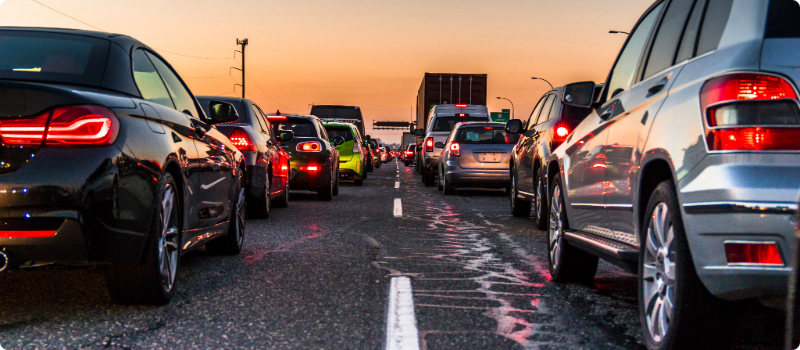
7. Adjust your commute times
Driving in slow, stop-and-go traffic can diminish your gas mileage. Sometimes leaving earlier or later can reduce your travel time and improve fuel efficiency, with relatively minor adjustments to your work schedule. Talk to your employer about how you can alter your work schedule to spend less of your valuable time waiting on the road, wasting gas.

8. Plan your trips effectively
Need to go to the gym, grocery store and pharmacy? Instead of tackling them one by one and returning home after each, plan your day around doing them all in one trip and save gas. You may want to include a fuel stop, too.
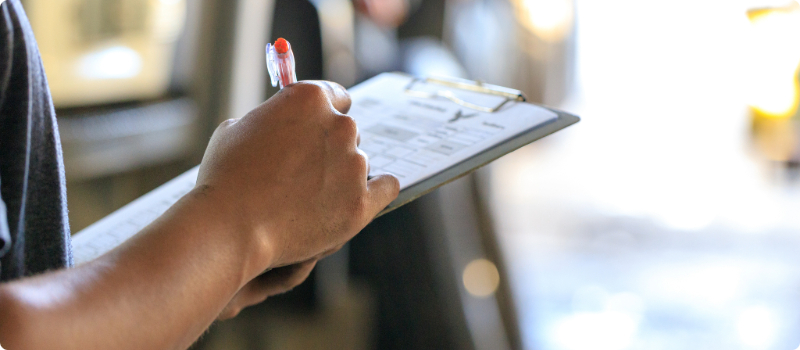
Maintain your car for improved gas mileage
Regularly maintaining your vehicle may help preserve your car's fuel efficiency. It can also help keep it optimally running while preserving its sale or trade-in value. Here are some maintenance tips to keep your car healthy and happy:
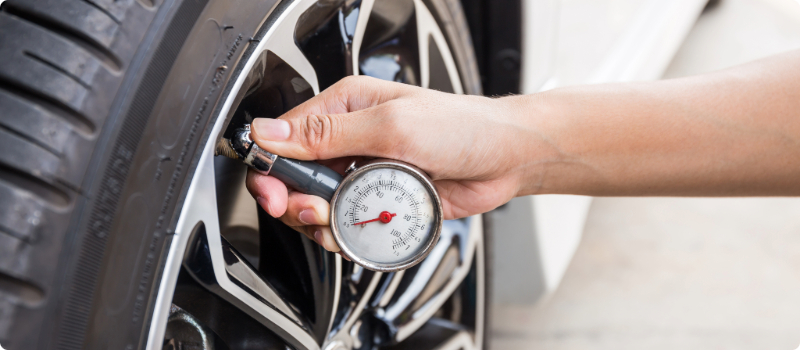
9. Keep your tires inflated
Check your owner’s manual, the sticker on your driver’s side door jamb or your glove box to determine your vehicle's proper tire inflation pressure (psi). Maintaining a proper psi can help improve your vehicle's average mpg. It may also help ensure your wheels are less susceptible to leaks and blowouts. However, don’t aim for the maximum psi; overinflating can reduce your vehicle's road safety.
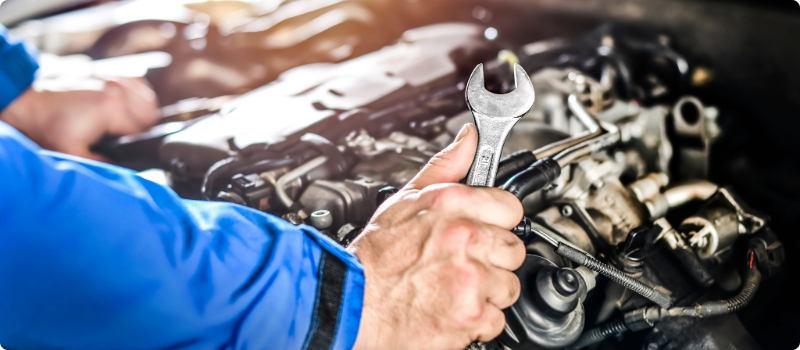
10. Tune your engine
If your engine light goes on, address the issue immediately. You get better gas mileage when your engine works efficiently. While at it, examine your air filters and spark plugs, too. Fixing small issues before they worsen can help improve your vehicle’s efficiency and performance.
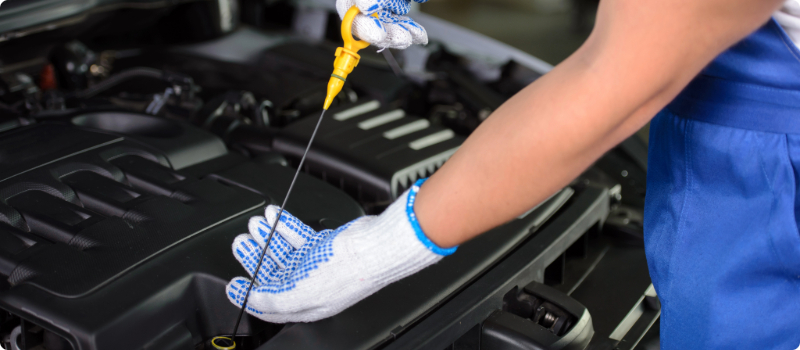
11. Change your oil on time
Regular oil changes with the correct grade of oil can improve your gas mileage. Some motor oils with energy conservation stickers can further improve your performance, if appropriate for your vehicle.

Watch your vehicle's weight
Whether you’re hauling your bike or a trailer, carrying extra weight can reduce your gas mileage. Here’s how you may help ensure your next trip doesn’t cost you tons of gas:
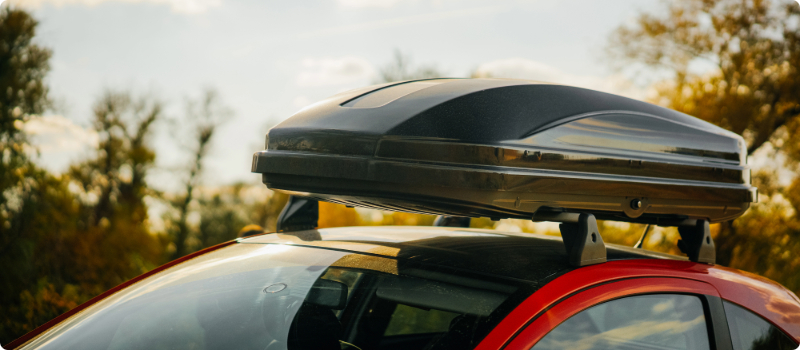
12. Rooftop racks and cargo create drag
Think twice about installing a cargo unit on your roof, which can reduce your car’s gas efficiency by as much as 25% on highways. If you need more vehicle space, using a rear-mounted cargo box or tray may create less drag than a roof rack, but not significantly.
Storage racks can diminish gas mileage even when empty. So, if you’ve found you haven’t used yours in a long time, consider having it professionally removed.
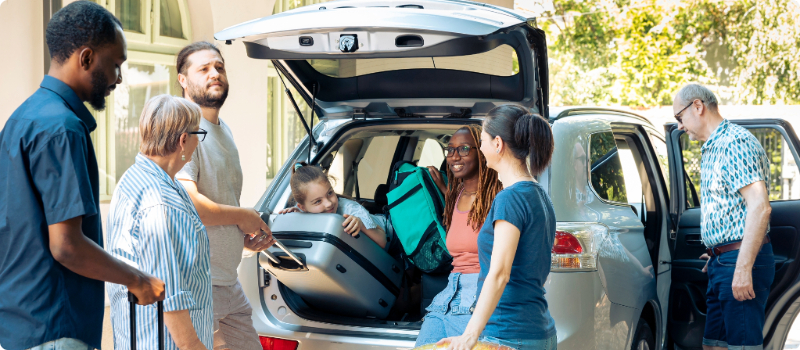
13. Declutter your trunk
The extra stuff in your vehicle's trunk weighs it down. Aside from your emergency kit and spare tire, many items are unnecessary. Removing those extra items may slightly improve your gas mileage.
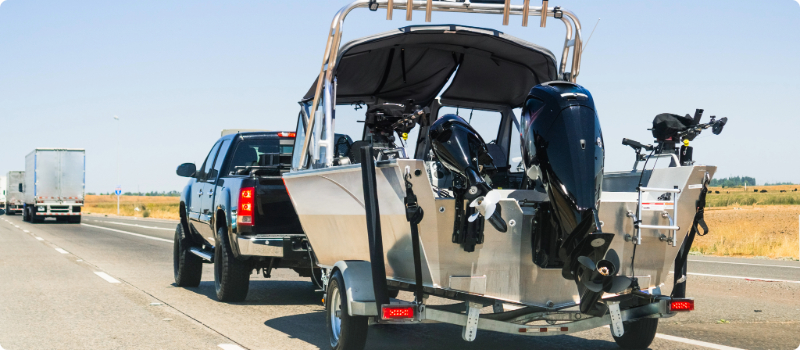
14. Check your trailer tires
Like your car, low tire pressure on your trailer can increase drag and reduce fuel efficiency. Maintaining your vehicle's trailer tires like you do your vehicle's tires keeps them adequately inflated for better gas mileage and may reduce the risk of blowouts and leaks. Avoid overinflating them, too.

Protect your car from unexpected losses
While these tips may help you spend less on fuel, protecting your vehicle with the right coverage(s) may help safeguard your finances, too. Contact your American Family Insurance agent for a car insurance policy specifically built just for you.
This article is for informational purposes only and based on information that is widely available. We do not make any guarantees or promise any results based on this information. We are not responsible for the content of any third-party sites that may be linked in this article.
*Customers who bundle home and auto insurance policies may save up to 23% on both policies together (as of December 2023). Discounts may vary by state, property, policy form and company underwriting the home and/or auto policy. Discounts may not apply to all coverages on a home or auto policy.
Tools & Resources
NextScripts
JSS component is missing React implementation. See the developer console for more information.

